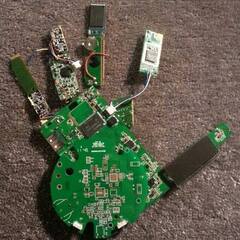Custom sleeving wire gauge question
Go to solution
Solved by W-L,
5 minutes ago, Ken7331 said:So there's no fuctional purpose to them using different gauges for the double wires? Is that just for fitting the wires into the connectors?
Double wires are mainly for sense wires to monitoring voltage so they don't need to be the same gauge. For double wires to get a clean look you can always do this and have it done midsplice to hide the tangle of wires.




















Create an account or sign in to comment
You need to be a member in order to leave a comment
Create an account
Sign up for a new account in our community. It's easy!
Register a new accountSign in
Already have an account? Sign in here.
Sign In Now